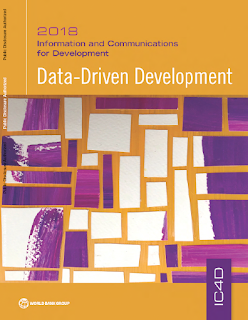International Conference on Digital Landscape (ICDL 2019)
6-8 November 2019
India Habitat Center, Lodhi Road, New Delhi, India
Organized by The Energy and Resources Institute (TERI)
Dear Distinguished Professors/ Researchers,
We invite you to participate in International Conference on Digital Landscape (ICDL 2019) going to be held from 06 to 08 November, 2019 at India Habitat Center, Lodhi Road, New Delhi, India. The theme of the conference is "Digital Library Transformation for an Agile Environment".
ICDL2019 conference intends to bring together a plethora of leading experts and digital luminaries from multiple disciplines to discuss and deliberate on innovations in the areas of Data Mining and Discovery, Big Data, Social Media Analytics & Computing, Knowledge and Innovation Management, Digital Research, e-Governance etc. that have potential to change the future world. A select digital luminaries from across the globe have already agreed to join the conference such as Dr. Alejandro Bia, Associate Professor, Miguel Hernández University; Ms Anna Maria Di Sciullo, Director, University of Quebec in Montreal, Canada; Prof Atsuyuki Morishima, University of Tsukuba, Japan; Ms Katarzyna Biernacka, HEADT Centre Berlin School of Library and Information Science, Germany; Dr. Marian Andrei Rizoiu, University of Technology Sydney, Australia; Prof Matthias L Hemmje, University of Hagen, Germany; Prof. Michael Seadle, Humboldt-Universität zu Berlin, Germany; Dr Shahid Rasool, Director, Commonwealth Educational Media Centre of Asia (CEMCA) and many more…
The conference will host twelve thematic events, paper & poster presentations, interactive panel sessions, workshops, special events and networking. ICDL 2019 will be an excellent forum to dwell upon several key areas of Smart Technologies including Big Data & Social Media Analytics, E-learning Platforms, Knowledge Innovation & Discovery, Open Access and many more…
| Highlights of ICDL 2019....<https://www.teriin.org/events/icdl/>
|
Participant who wants to avail the early bird registration discount has to register on or before 1st October, 2019.
Important dates
- 31 July 2019 – Last date for submission of full papers
- 01 September 2019 - Notification of acceptance of paper with comments
- 01 October 2019 - Submission of the final paper after incorporating comments
Submit your paper and register online using following URLs:
Register online : http://events.teriin.org/terievent/registration/regstep1/116
Submit your paper : https://www.teriin.org/events/icdl/call-for-paper.php
For further Information Contact:
ICDL 2019 Secretariat
The Energy and Resources Institute (TERI)
India Habitat Centre Complex, Lodhi Road,
New Delhi-110003, India
Tel: +91 11 24682100 or 41504900; Fax: 24682144
Email: icdl@teri.res.in






